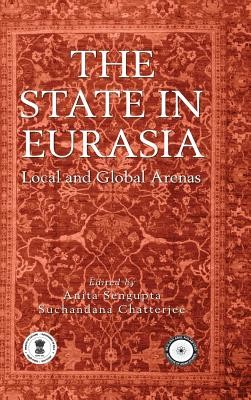
- We will send in 10–14 business days.
- Publisher: K W Publishers Pvt Ltd
- Year: 2012
- Pages: 300
- ISBN-10: 9381904472
- ISBN-13: 9789381904473
- Format: 15.2 x 22.9 x 2.1 cm, kieti viršeliai
- Language: English
- SAVE -10% with code: EXTRA
The State in Eurasia (e-book) (used book) | bookbook.eu
Reviews
Description
Since the emergence of post-Soviet states in the Eurasian space there has been considerable reflection on the role that the state has played in the local and global arenas. Transformation from being part of the 'Soviet' to independent existence has meant state involvement in the forging of new nations out of disparate identities based on the criteria of national languages, the reinterpretation of historical events, depiction of personality-centric themes, the portrayal of illustrative careers and the rhetoric of development. This volume focuses on some of the aspects of this involvement through studies of the performative role of the Central Asian states in the arena of politics, diplomacy, culture, historical memory, and their interaction within the Eurasian space. It reflects on ways in which the state reacts to society and how discourses in the field of economy, society and culture dovetail with or diverge from the political discourse about state-building. Relations between formal institutions and informal structures; emerging conceptions of democracy in the context of the Tulip Revolution in Kyrgyzstan and the disruptive events in western Kazakhstan during the twentieth anniversary of the republic's independence; the nature of bilateral and multilateral alignments among regional and interregional actors are some of the aspects through which the role of the state has been examined by the authors. The volume seeks to address the question of how the state acts as an agent of influence and control not just on performative traditions but also in the creation of a single community as the basis for a nation.
EXTRA 10 % discount with code: EXTRA
The promotion ends in 21d.10:51:37
The discount code is valid when purchasing from 10 €. Discounts do not stack.
- Publisher: K W Publishers Pvt Ltd
- Year: 2012
- Pages: 300
- ISBN-10: 9381904472
- ISBN-13: 9789381904473
- Format: 15.2 x 22.9 x 2.1 cm, kieti viršeliai
- Language: English English
Since the emergence of post-Soviet states in the Eurasian space there has been considerable reflection on the role that the state has played in the local and global arenas. Transformation from being part of the 'Soviet' to independent existence has meant state involvement in the forging of new nations out of disparate identities based on the criteria of national languages, the reinterpretation of historical events, depiction of personality-centric themes, the portrayal of illustrative careers and the rhetoric of development. This volume focuses on some of the aspects of this involvement through studies of the performative role of the Central Asian states in the arena of politics, diplomacy, culture, historical memory, and their interaction within the Eurasian space. It reflects on ways in which the state reacts to society and how discourses in the field of economy, society and culture dovetail with or diverge from the political discourse about state-building. Relations between formal institutions and informal structures; emerging conceptions of democracy in the context of the Tulip Revolution in Kyrgyzstan and the disruptive events in western Kazakhstan during the twentieth anniversary of the republic's independence; the nature of bilateral and multilateral alignments among regional and interregional actors are some of the aspects through which the role of the state has been examined by the authors. The volume seeks to address the question of how the state acts as an agent of influence and control not just on performative traditions but also in the creation of a single community as the basis for a nation.


Reviews